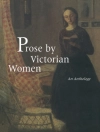In ‘Ivan Turgenev, ‘ Henry James masterfully explores the life and literary contributions of the influential Russian author, providing a comprehensive analysis of Turgenev’s themes and stylistic nuances. Written in James’s renowned elegant prose, the book intricately weaves biographical sketches with literary critique, illuminating Turgenev’s complex characters and his profound understanding of human psychology. Within the context of 19th-century literature, James places Turgenev alongside contemporaries such as Dostoevsky and Tolstoy, highlighting how Turgenev’s delicate realism and exploration of the Russian social landscape contributed to the modern novel’s evolution. Henry James, an American author and a pivotal figure in literary realism, was deeply influenced by European literature and culture. His admiration for Turgenev’s work stemmed from a shared fascination with the psychological nuances of character and the moral dilemmas prevalent in society. Through his extensive travels in Europe and his engagement with prominent literary figures, James cultivated a nuanced understanding of Turgenev’s influence, which he adeptly conveys in this critical assessment. This book is a must-read for anyone interested in the intersection of literary analysis and biography. James’s insights not only elevate Turgenev’s stature in the literary canon but also provide readers with a deeper appreciation for the subtle intricacies of character and society in Russian literature.
关于作者
Henry James (1843–1916), widely regarded as one of the key figures of 19th-century literary realism, is known for his nuanced exploration of consciousness and perception, as well as his contributions to the development of the novel as an art form. Born in New York City to a wealthy and intellectual family, James spent much of his life in Europe, which greatly influenced his writing. His works often contrast American and European cultures and societies, reflecting his deep understanding of both settings and their societal dynamics. James published a plethora of novels, short stories, and critical essays, developing a distinctive prose style characterized by its precision, subtlety, and psychological depth. Among his most prominent works are ‘The Portrait of a Lady’ (1881), ‘The Wings of the Dove’ (1902), and ‘The Ambassadors’ (1903), which solidified his reputation as a master of the psychological novel and keen social observer. His writing style, known for its complex sentence structures and attention to detail, has been referred to as ‘Jamesian, ‘ and has profoundly influenced many writers that came after him. Although the book title ‘Ivan Turgenev’ is attributed to Henry James, it is worth clarifying that Ivan Turgenev was a Russian novelist and James was known to have written a critical study on his work, thus reflecting James’ interest in and impact by the broader canvas of European literature. Henry James also made significant theoretical contributions to the understanding and analysis of fiction, most notably through his essay ‘The Art of Fiction’ (1884), wherein he argued for the freedom of the novelistic form and the importance of psychological realism.












